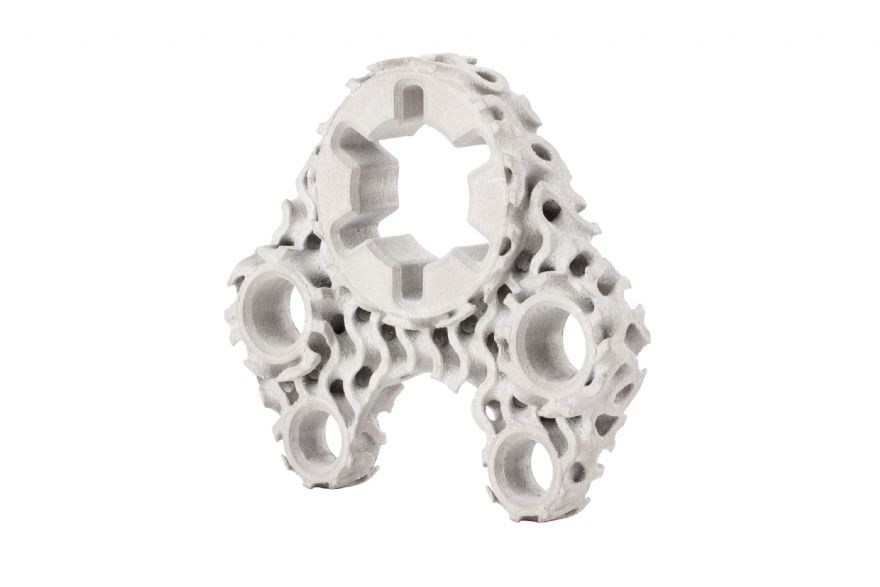
US-based
Desktop Metal, a leader in mass production and turn-key additive manufacturing (AM) solutions, has qualified the use of titanium alloy Ti-6Al-4V (Ti64) for its Studio System 2 — a 3-D printing platform for producing high-performance metal parts in low volumes for pre-production and end-use applications.
Jonah Myerberg, Desktop Metal’s co-founder and CTO, said: “With plans to begin shipping Ti64 this month, we will be the first and only company to make the material commercially available for extrusion-based bound metal AM technologies.
“Ti64 is the most widely used titanium alloy and is characterised by its high tensile strength, corrosion resistance, and bio-compatibility. With a high strength-to-weight ratio, Ti64 is considered an ideal material for high-performance production applications in industries such as aerospace and defence, automotive, and oil and gas. In addition, its bio-compatibility makes it particularly desirable in medical applications, including surgical devices and implants.
“The Studio System 2 produces Ti64 with exceptional mechanical properties. Tensile properties include 730 MPa yield strength, 845 MPa ultimate tensile strength, and 17% elongation. These mechanical properties exceed those set by ASTM F2885-17 standards for metal injection-moulded surgical implant applications.
“Titanium has been a challenging material for bound metal 3-D printing, because it is both extremely reactive in powder form and difficult to sinter. We are excited to be the first to commercialise this titanium alloy for 3-D printing through our Studio System 2.”
Steve Wozniak, co-founder of Privateer Space, a new satellite company focused on monitoring and cleaning up objects in space, said: “3-D printing with titanium is incredibly valuable in industries like aerospace because of the material’s ability to support complex and lightweight designs.
“With the Studio System 2, the team at Privateer Space will be able to achieve the affordability and lightweighting capabilities needed to pave the way for our satellite design and launch. This technology is truly a differentiator in helping companies to accelerate innovations in space and, through the material advancements that Desktop Metal is making, we have an amazing opportunity to collaborate and keep space accessible for future generations.”
The machine bracket pictured has been designed using a gyroid lattice infill and titanium in place of 17-4PH stainless steel to reduce weight and material while maintaining the required functional strength and stiffness.
The resulting geometry would be impossible to produce using conventional manufacturing processes due to its complexity. 3-D printing this new design on the Studio System 2 in Ti64 reduces the part weight by 59%.